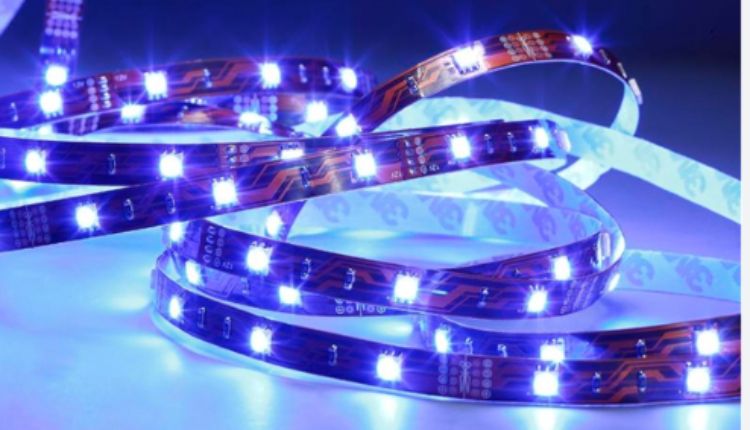When it comes to boating, having a reliable outboard motor is crucial for ensuring smooth operation and overall enjoyment on the water. Whether you’re replacing an old motor or purchasing your first one, buying an outboard motor online offers convenience, variety, and often better deals than traditional retail stores. This guide will help you navigate the process of purchasing an outboard motor online, from understanding key features to finding the best options.
1. Understand Your Needs: Selecting The Right Motor Type
The first step in buy outboard motor online is to determine which type of motor will best suit your needs. There are several factors to consider:
Motor Size and Power: Outboard motors come in various sizes, typically measured in horsepower (HP). Smaller boats may only need a motor between 2 to 10 HP, while larger boats require motors ranging from 30 HP to over 300 HP. Assess the weight of your boat and the intended use (e.g., fishing, watersports, or cruising) to decide on the appropriate motor power.
Two-Stroke vs. Four-Stroke: Two-stroke motors are generally lighter and more powerful for their size but are less fuel-efficient and produce more emissions. Four-stroke motors, on the other hand, are more fuel-efficient, environmentally friendly, and quieter but tend to be heavier.
Electric vs. Gas-Powered: Electric outboard motors are eco-friendly, low-maintenance, and perfect for smaller boats or short trips, while gas-powered motors offer higher performance and are suitable for longer excursions.
2. Consider Key Features And Specifications
Once you’ve narrowed down the type of motor you need, it’s essential to compare the specific features and specifications of different outboard motors. Some features to pay attention to include:
Weight: The weight of the motor will impact your boat’s handling and fuel efficiency. A heavier motor may offer more power but can affect your boat’s performance.
Engine Technology: Modern outboard motors come with advanced engine technologies like fuel injection, which improves fuel efficiency and reduces emissions. Look for these innovations for better performance and lower environmental impact.
Starting System: Outboard motors come with different starting systems, including manual pull-start, electric start, or even remote start. Choose a motor with a starting system that fits your preferences.
Maintenance and Parts Availability: Consider motors with readily available parts and those with low-maintenance designs. Brands with excellent customer support can make the long-term ownership experience easier.
3. Research Trusted Brands and Online Stores
Now that you know what to look for, it’s time to research trusted brands and reputable online stores. Some popular outboard motor brands include:
Yamaha: Known for their reliable, fuel-efficient, and long-lasting motors, Yamaha is one of the most trusted brands in the industry.
Mercury: Mercury outboards are well-known for their performance, innovation, and a wide range of options for different boating needs.
Honda: Honda is famous for producing quiet and fuel-efficient four-stroke motors that are perfect for a variety of boat types.
When buying online, ensure that the retailer has a good reputation and offers safe payment options. Some well-known online stores for outboard motors include Amazon, West Marine, and Overton’s. It’s also a good idea to check for customer reviews and ratings to gauge the reliability of the motor and the seller.
4. Compare Prices And Look for Deals
Pricing for outboard motors can vary significantly based on the brand, size, and features. One of the advantages of shopping online is the ability to easily compare prices across different websites. Don’t forget to factor in shipping costs, as large motors may incur additional fees.
Many online stores offer seasonal sales, clearance events, or bundle deals, which can be a great way to save money. Be sure to check if the motor comes with a warranty or any extended service plans, which could save you money in the long run.
Additionally, check for financing options if you’re purchasing a more expensive motor. Some retailers offer interest-free payment plans or special discounts when financing your purchase.
5. Shipping, Installation, and After-Sales Support
Before making your final purchase, consider the shipping policies and after-sales services offered by the online retailer. Shipping costs and delivery time can vary based on location and the size of the motor. Make sure to verify whether the store offers free shipping or has any specific delivery requirements for large or heavy motors.
If you’re not experienced with installing an outboard motor, some online retailers offer installation services for an additional fee, or you may need to hire a local technician. It’s essential to ensure the motor is correctly installed to prevent damage or poor performance.
Finally, look into the after-sales support the retailer offers. A good warranty can give you peace of mind, and excellent customer service can help you if you need assistance with repairs or maintenance.
What’s Next?
Buying an outboard motor online offers convenience, competitive pricing, and a wide selection of options. By understanding your boating needs, researching key features and trusted brands, and comparing prices across different stores, you can find the perfect motor for your vessel. With careful planning and research, you can make an informed decision and enjoy many years of boating fun with your new outboard motor.










